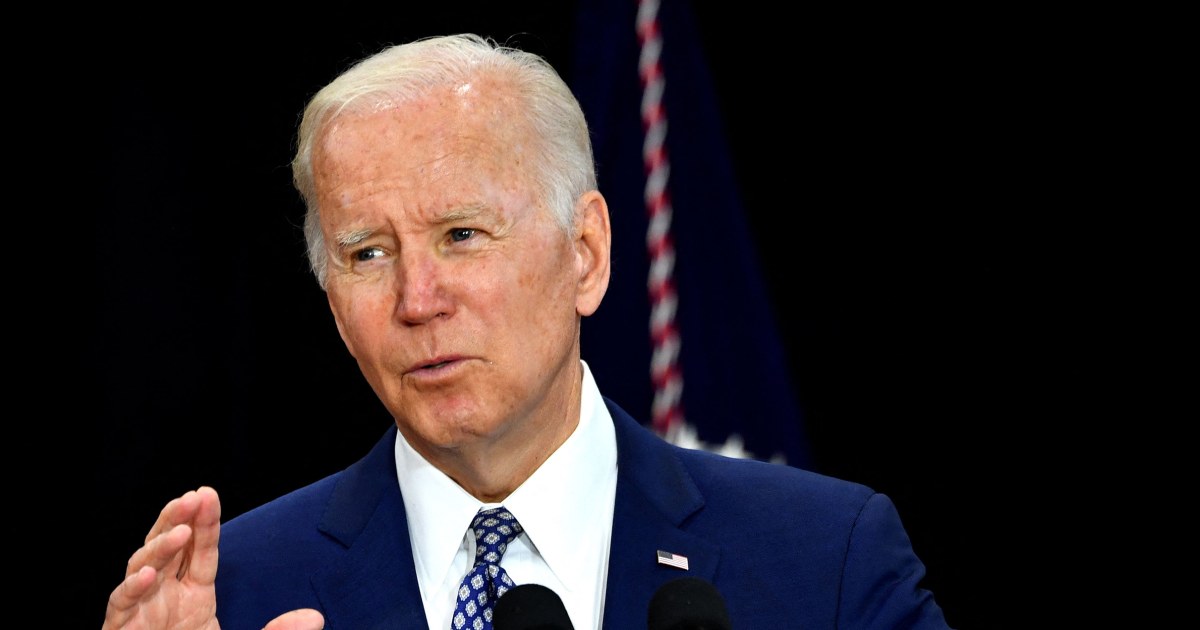
Intel shareholders reject executive pay
The vote won't immediately affect the compensation of Intel's executives.
Array
(
[content] =>
[params] => Array
(
[0] => /forum/threads/intel-shareholders-rejected-the-company%E2%80%99s-executive-pay-program%E2%80%94putting-the-ceo%E2%80%99s-promised-180-million-pay-package-on-the-line.16028/
)
[addOns] => Array
(
[DL6/MLTP] => 13
[Hampel/TimeZoneDebug] => 1000070
[SV/ChangePostDate] => 2010200
[SemiWiki/Newsletter] => 1000010
[SemiWiki/WPMenu] => 1000010
[SemiWiki/XPressExtend] => 1000010
[ThemeHouse/XLink] => 1000970
[ThemeHouse/XPress] => 1010570
[XF] => 2030770
[XFI] => 1060170
)
[wordpress] => /var/www/html
)

That's interesting, because in the UK these shareholder votes on exec compensation actually matter and make a difference.These compensation proxy items are just advisory votes. I've never read about an executive's contract or employment agreement that mentioned these advisory votes in any way, no less with negative ramifications. So these votes are just one step short of meaningless.
I think I like the UK rules on this topic better!That's interesting, because in the UK these shareholder votes on exec compensation actually matter and make a difference.
So if the US system is to ignore them, I find this rather strange. Should the wishes of the shareholders - the owners of the company - just be ignored ?
UK policy (from 2013):
"Shareholders will have a binding vote on a resolution to approve the directors’ remuneration policy. The remuneration policy will set out how the company proposes to pay directors, including every element of remuneration that a director will be entitled to and how it supports the company's long-term strategy and performance. The policy will also include details of the company’s proposed approach to recruitment and loss of office payments. Companies must put the remuneration policy to a shareholder resolution at least every three years. If a company wishes to make any changes to the remuneration policy it will have to put the new policy to shareholders for approval at a general meeting."


Agreed, and if only this was just an Intel problem. IMO, unqualified board members are a significant problem of many (perhaps most) US companies. Take a look at the Applied Materials BoD, for another example. The boards hire people with impressive-looking resumes from various fields, not experts in what the company does. Some board members are, justifiably, experts in corporate finance, government matters (companies like Apple with global anti-trust problems come to mind), customer / market matters, etc, but in the US most BoDs simply won't be qualified to judge strategy or technical direction. And I don't think the CEOs or board chairpersons are looking for technical activists as board members. The BoD membership is mostly for show, IMO. Sometimes they are called upon to vote on something sensitive, like Intel's "forcing out" of Brian Krzanich as CEO for, uh, you know, with a female subordinate in 2018, but mostly, IMO, BoDs are just for-show oversight. It is alarming, to say the least.The effectiveness of the resolution really depends on Intel's Board of Directors.
The current Intel's board are full of nice people but not enough right people. The current composition of their board is not suitable for a semiconductor company as big as Intel is and as complicated as Intel is. Other than Pat Gelsinger, I can't see a second board member who really has experience in operating/managing a major semiconductor related business. Take a look at their bios here:

And if you have extra time, take a look TSMC's:

Board of Directors - Taiwan Semiconductor Manufacturing Company Limited
TSMC's Board of Directors consists of nine distinguished members with a great breadth of experience as world-class business leaders or professionals. We deeply rely on them for their diverse knowledge, personal perspectives, and solid business judgment. Finvestor.tsmc.com
Agreed, and if only this was just an Intel problem. IMO, unqualified board members are a significant problem of many (perhaps most) US companies. Take a look at the Applied Materials BoD, for another example. The boards hire people with impressive-looking resumes from various fields, not experts in what the company does. Some board members are, justifiably, experts in corporate finance, government matters (companies like Apple with global anti-trust problems come to mind), customer / market matters, etc, but in the US most BoDs simply won't be qualified to judge strategy or technical direction. And I don't think the CEOs or board chairpersons are looking for technical activists as board members. The BoD membership is mostly for show, IMO. Sometimes they are called upon to vote on something sensitive, like Intel's "forcing out" of Brian Krzanich as CEO for, uh, you know, with a female subordinate in 2018, but mostly, IMO, BoDs are just for-show oversight. It is alarming, to say the least.



Agreed, and if only this was just an Intel problem. IMO, unqualified board members are a significant problem of many (perhaps most) US companies. Take a look at the Applied Materials BoD, for another example. The boards hire people with impressive-looking resumes from various fields, not experts in what the company does. Some board members are, justifiably, experts in corporate finance, government matters (companies like Apple with global anti-trust problems come to mind), customer / market matters, etc, but in the US most BoDs simply won't be qualified to judge strategy or technical direction. And I don't think the CEOs or board chairpersons are looking for technical activists as board members. The BoD membership is mostly for show, IMO. Sometimes they are called upon to vote on something sensitive, like Intel's "forcing out" of Brian Krzanich as CEO for, uh, you know, with a female subordinate in 2018, but mostly, IMO, BoDs are just for-show oversight. It is alarming, to say the least.
Interesting comparison. Of course stock based compensation will take a big hit this year. Where are Lisa Su, Jensen Huang, and CC Wei on the comparison?
View attachment 749
You might be right, but MSFT + AAPL > US$4T in market capitalization, even at their currently reduced levels, which is greater than the value of the entire London Stock Exchange. I should be so incompetent. ;-)I will tell about people about whom I can understand.
1. Tim Cook — I can say this is a person whom would've been running a sourcing office of an average brand 15 years ago.
I remember my first job in 2007-2009, and people coming from abroad to buy widgets at least knew from what kind of factory each widget was coming from. Now, a more regular picture is a delegation of 3-4 men, a lawyer, an supply chain manager, and some "China consultant" arriving, and arguing in with each other for an hour from whom to buy an aluminium laptop lid, just to find that all suppliers they shortlisted were plastic moulding factories.
A really helpful type of person to get things done, but I as you see I don't get why he gets idolised to this extend.
I think he is a case of just plainly competent guy who also happened to live long enough to learn how to survive an American boardroom, and shareholder meetings.
2. Nadella — Actual software engineer who sat at the job for long enough to get promoted.
Microsoft has reached a Catharsis, where it was a really unappealing place to work for trendy boys, and when they all left, people finally started to realise that there is really nobody left to put into the boardroom. As rumours tell, Microsoft C-level jobs were offered to a really wide selection of people, who all refused very lucrative terms.
For now, Microsoft shareholders see hims as a Jesus the Saviour figure who made some unfathomable magic, and keep quiet. In reality, what Nadella did was just to sell Azure to Active Directory buyers, since the later will buy just anything anyways.
3. Tan — Concrete plant operator.
As the title suggest, works, and sees electronics as commodity stuff, and thinks that the foolproof recipe for happiness is to buy all competing concrete plants, and steel mills in a country.
4. Su — more of a Nadella type too
Another case of somebody who actually knows what's happening getting the job just through growing in seniority, and waiting.
5. Huang — well, a really good combo of somebody growing up, and learning tricks of surviving the boardroom, pleasing investors, lawfare, playing Steve Jobs, while also being a technical person.
While Nvidia is a public company now, he never stopped treating is as his own shop, and it helps.
6. Wei — used to be more salesmanly type, but then had to learn the tech, and become even better at handling big clients.
You might be right, but MSFT + AAPL > US$4T in market capitalization, even at their currently reduced levels, which is greater than the value of the entire London Stock Exchange. I should be so incompetent. ;-)
I like Huang too.
Just out of curiosity, how many of the people on your list have you personally seen in action?I will tell about people about whom I can understand.
1. Tim Cook — I can say this is a person whom would've been running a sourcing office of an average brand 15 years ago.
I remember my first job in 2007-2009, and people coming from abroad to buy widgets at least knew from what kind of factory each widget was coming from. Now, a more regular picture is a delegation of 3-4 men, a lawyer, an supply chain manager, and some "China consultant" arriving, and arguing in with each other for an hour from whom to buy an aluminium laptop lid, just to find that all suppliers they shortlisted were plastic moulding factories.
A really helpful type of person to get things done, but I as you see I don't get why he gets idolised to this extend.
I think he is a case of just plainly competent guy who also happened to live long enough to learn how to survive an American boardroom, and shareholder meetings.
2. Nadella — Actual software engineer who sat at the job for long enough to get promoted.
Microsoft has reached a Catharsis, where it was a really unappealing place to work for trendy boys, and when they all left, people finally started to realise that there is really nobody left to put into the boardroom. As rumours tell, Microsoft C-level jobs were offered to a really wide selection of people, who all refused very lucrative terms.
For now, Microsoft shareholders see hims as a Jesus the Saviour figure who made some unfathomable magic, and keep quiet. In reality, what Nadella did was just to sell Azure to Active Directory buyers, since the later will buy just anything anyways.
3. Tan — Concrete plant operator.
As the title suggest, works, and sees electronics as commodity stuff, and thinks that the foolproof recipe for happiness is to buy all competing concrete plants, and steel mills in a country.
4. Su — more of a Nadella type too
Another case of somebody who actually knows what's happening getting the job just through growing in seniority, and waiting.
5. Huang — well, a really good combo of somebody growing up, and learning tricks of surviving the boardroom, pleasing investors, lawfare, playing Steve Jobs, while also being a technical person.
While Nvidia is a public company now, he never stopped treating is as his own shop, and it helps.
6. Wei — used to be more salesmanly type, but then had to learn the tech, and become even better at handling big clients.
While I loved, loved Paul2 cold shower on leaders above, but there must be good leaders out there, value creators, worth what they were paid? They tend to come from the lower region of the S-curve. My candidates:
1-Morris Chang. I keep posting the Brookings Institution podcast he did recently, it is so good to listen to, repeatedly. There is something irreplaceable about being near the founding of a new technology, like he was at TI in the 1960s, following Kilby and the transistor's ascent. His experience of the smarts in industry chasing compensation into finance/consulting is a warning, and an explanation for the cold shower above.
2-Bill Gates.
3-Steve Jobs.
4-Bob Noyce.
As you can see from my list, we're living in the twilight period now, on the top of the S-curve, with stewards rather than leaders.
Just out of curiosity, how many of the people on your list have you personally seen in action?
Here's my biased take:While I loved, loved Paul2 cold shower on leaders above, but there must be good leaders out there, value creators, worth what they were paid? They tend to come from the lower region of the S-curve. My candidates:
1-Morris Chang. I keep posting the Brookings Institution podcast he did recently, it is so good to listen to, repeatedly. There is something irreplaceable about being near the founding of a new technology, like he was at TI in the 1960s, following Kilby and the transistor's ascent. His experience of the smarts in industry chasing compensation into finance/consulting is a warning, and an explanation for the cold shower above.
2-Bill Gates.
3-Steve Jobs.
4-Bob Noyce.
As you can see from my list, we're living in the twilight period now, on the top of the S-curve, with stewards rather than leaders.
